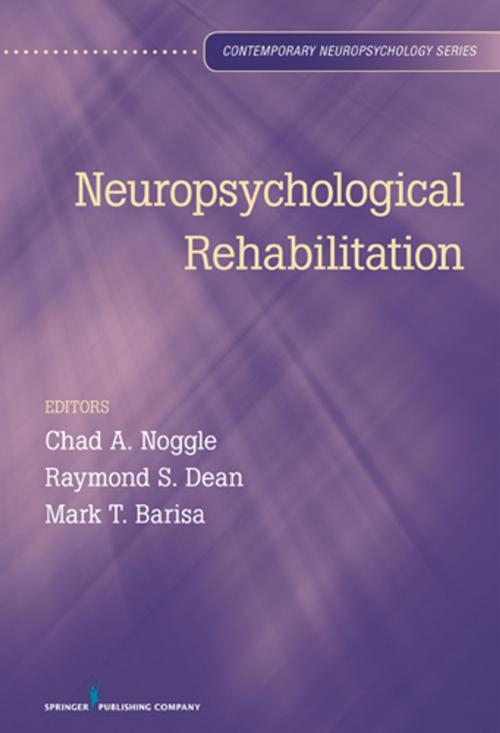Neuropsychological Rehabilitation
Nonfiction, Health & Well Being, Medical, Specialties, Physical Medicine & Rehabilitation, Psychology, Neuropsychology| Author: | ISBN: | 9780826107152 | |
| Publisher: | Springer Publishing Company | Publication: | April 26, 2013 |
| Imprint: | Springer Publishing Company | Language: | English |
| Author: | |
| ISBN: | 9780826107152 |
| Publisher: | Springer Publishing Company |
| Publication: | April 26, 2013 |
| Imprint: | Springer Publishing Company |
| Language: | English |
"Neuropsychological Rehabilitation provides useful introductory material and backgroundinformation on various disorders, assessments, and rehabilitative interventions for adult andgeriatric populations...This book is essential for psychologists or clinical neuropsychologists who have a stronginterest in understanding the current medical aspects of neuropsychological rehabilitation."--PsycCRITIQUES
This volume disseminates knowledge about the most advanced practices and techniques in the rehabilitation of neuropsychological deficits, covering both specific neuropsychological domains and approaches in neurorehabilitation. It adheres to the philosophy that it is not enough to identify a deficit or diagnose a disease unless doing so helps to direct rehabilitation efforts to improve function. Intended to advance clinical skills, the book goes beyond surface diagnostic practice to foster rehabilitative efforts in response to residual deficits and disease.
The volume begins by addressing the foundations of neuropsychology in rehabilitation and discussing, in depth, domain-specific rehabilitation practices, with a focus on functioning. This is followed by a discussion of supplemental applications and practices that go beyond function-specific methodology including neuroimaging and pharmacological agents. Also covered is the role of system/environmental manipulation and transitioning strategies. The final section attends to those presentations/groupings most commonly seen in rehabilitation practice for which there is no prototypical form.
Key Features:
- Presents in depth the most advanced clinical applications for neuropsychological rehabilitation
- Covers neuropsychological rehabilitation in terms of specific cognitive domains (attention, language, memory) and approaches to and practices in neurorehabilitation (neuroimaging, vocational rehabilitation, pharmacological rehabilitation)
- Written by the foremost scholars in the field
"Neuropsychological Rehabilitation provides useful introductory material and backgroundinformation on various disorders, assessments, and rehabilitative interventions for adult andgeriatric populations...This book is essential for psychologists or clinical neuropsychologists who have a stronginterest in understanding the current medical aspects of neuropsychological rehabilitation."--PsycCRITIQUES
This volume disseminates knowledge about the most advanced practices and techniques in the rehabilitation of neuropsychological deficits, covering both specific neuropsychological domains and approaches in neurorehabilitation. It adheres to the philosophy that it is not enough to identify a deficit or diagnose a disease unless doing so helps to direct rehabilitation efforts to improve function. Intended to advance clinical skills, the book goes beyond surface diagnostic practice to foster rehabilitative efforts in response to residual deficits and disease.
The volume begins by addressing the foundations of neuropsychology in rehabilitation and discussing, in depth, domain-specific rehabilitation practices, with a focus on functioning. This is followed by a discussion of supplemental applications and practices that go beyond function-specific methodology including neuroimaging and pharmacological agents. Also covered is the role of system/environmental manipulation and transitioning strategies. The final section attends to those presentations/groupings most commonly seen in rehabilitation practice for which there is no prototypical form.
Key Features:
- Presents in depth the most advanced clinical applications for neuropsychological rehabilitation
- Covers neuropsychological rehabilitation in terms of specific cognitive domains (attention, language, memory) and approaches to and practices in neurorehabilitation (neuroimaging, vocational rehabilitation, pharmacological rehabilitation)
- Written by the foremost scholars in the field















